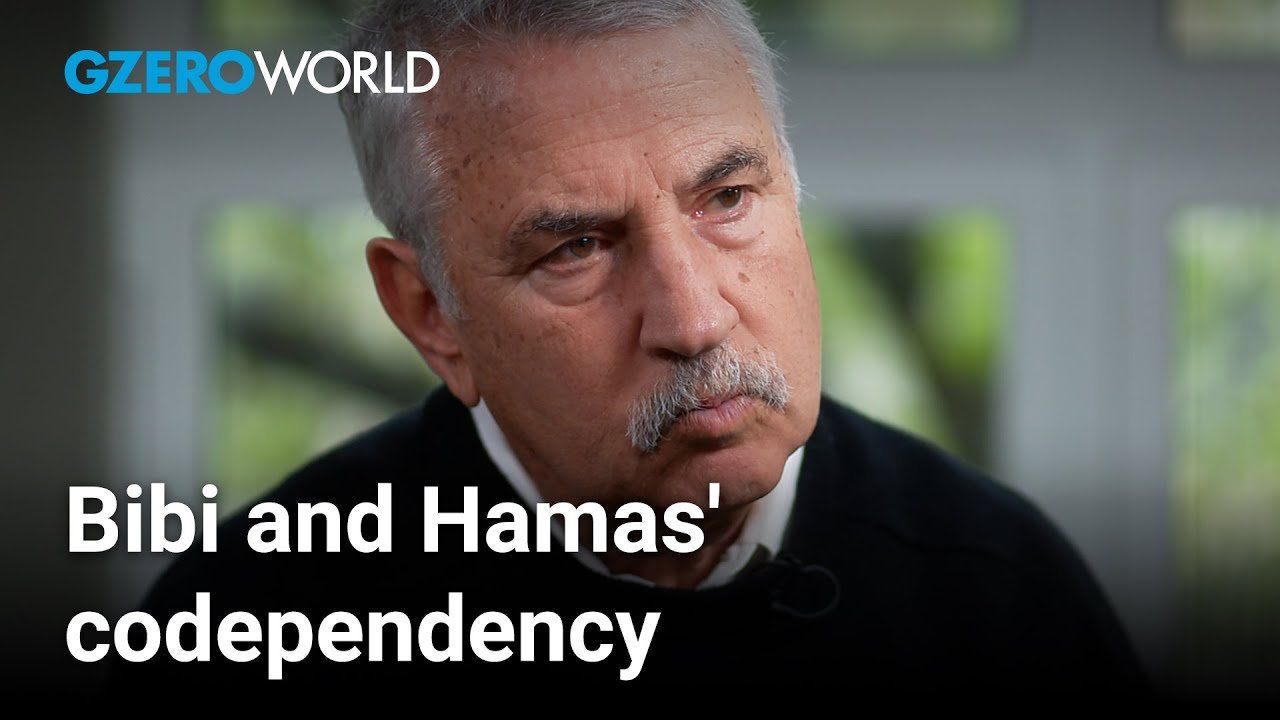
Israeli Prime Minister Benjamin "Bibi" Netanyahu has said that the only way the war in Gaza will end is with the complete destruction of Hamas, the pro-Palestinian terrorist group that controls Gaza and was behind the October 7 attack.
But Pulitzer prize-winning author and New York Times columnist Thomas Friedman argues that much of the horror that's played out in Gaza over the past six months goes back to a devil's bargain that Bibi has maintained with Hamas over the past fifteen years. "Netanyahu always understood that ... having a strong Hamas in Gaza is the best way to ensure a weak Palestinian Authority in the West Bank." In a wide-ranging interview for this week's episode of GZERO World, Ian Bremmer sits down with Friedman to try to chart out an imaginable (and palatable) ending to the Middle East's bloodiest war in years. "[Netanyahu] is now hostage to a far-right in his coalition that has told him that anything that smacks of a Palestinian state or even progress toward a Palestinian state...is a no-go. We'll throw you out of power.'"
So what can people do who consider themselves both pro-Israeli and pro-Palestinian? "The most important thing you can do to be pro-Israeli, " Friedman tells Bremmer, "...is to be for the removal of Bibi Netanyahu by the Israeli people." And the most pro-Palestinian thing you can do? "Be against Hamas and for the Palestinian Authority in Ramallah....Because if that project succeeds or makes progress, many more things are possible in terms of what can happen between the Israelis and Palestinians."
Catch GZERO World with Ian Bremmer every week on US public television (check local listings) and online.
- Netanyahu: “Now is the time for war” ›
- Netanyahu escalates feud with the White House ›
- Yuval Noah Harari: Netanyahu's 'Deep State' fears enabled Oct 7 attack ›
- Netanyahu and Hamas both won, Israelis and Palestinians lost ›
- Why Israel's Netanyahu continues to antagonize Biden on Gaza - GZERO Media ›
- Israel-Hamas war: Netanyahu hostage to far-right coalition, says author Friedman - GZERO Media ›
- Israelis push Netanyahu for ceasefire after Hamas kills hostages - GZERO Media ›
- Author Thomas Friedman on how the Gaza war could end - GZERO Media ›